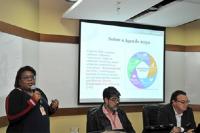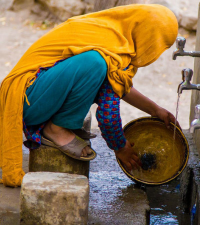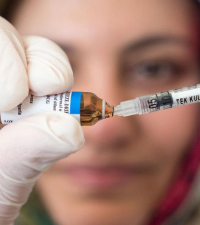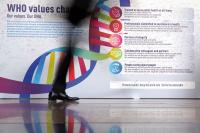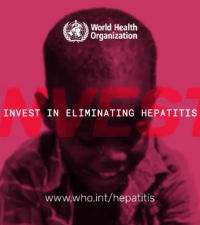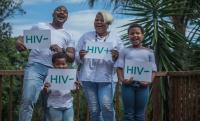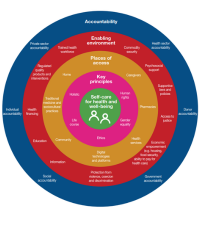You are here
News
-
08/30/2019 - According to PAHO, over 34% of the population in Latin America and the Caribbean does not have safe managed drinking water, and only 22% have sewage services. It is estimated that about 7,600 children under the age of 5 will die annually for diarrheal diseases in the region. It is estimated that at each R $ 1 expense in sanitation, R $ 4 sejam saved in health. This issues are part of the Objectives of Sustainable Development (SDG) 3 and 6, that will be the focus of a Fiocruz event next year. For this, the National School of Public Health Sérgio Arouca (ENSP/ Fiocruz) promoted a debate about the organization of the National Seminary of Health, Health and Human Directorates in the 2030 Agenda, last tuesday (20/8). Read more.
-
08/26/2019 - Tiny plastic particles known as microplastics are “everywhere – including in our drinking-water”, but they are not necessarily a risk to human health, UN experts said last week. In its first summary of the latest research into the impact of the tiny plastic pollutants on humans, the World Health Organization said that they have been found in marine settings, waste and fresh water, food, the air and drinking-water, both bottled and from a tap. Read more.
-
08/12/2019 - Measles is a serious and highly contagious infection caused by a virus. Americas region has confirmed 2,927 cases of the disease this year. The data are from the latest epidemiological update from the Pan American Health Organization, Opas, published on Wednesday, August 7. In July, the disease was identified in 14 countries. The largest proportion was registered in the United States, followed by Brazil and Venezuela.
-
08/09/2019 - Increasing near-universal breastfeeding levels can save over 800,000 lives annually, especially children under 6 months of age. In addition, breastfeeding reduces the risk of breast and ovarian cancer, type 2 diabetes mellitus and heart disease in nursing mothers. For mother and baby to have the opportunity to establish this relationship, it is important that support networks exist. The subject is the central theme of this month, the golden August.
-
08/06/2019 - EOn April 7th, 1948, the World Health Organization (WHO) was created, which incorporated innovative principles. In its Constitution, health is understood as ‘a state of complete physical, mental, and social well-being, and not merely the absence of disease or infirmity.’ Moreover, ‘the highest attainable standard of health’ is listed as ‘one of the fundamental rights of every human being,’ which should be put into effect without any distinction of race, religion, political belief, economic or social conditions. Many believe that WHO reached its peak in the 1970s and that today there are many problems to be resolved in the organization.
-
08/06/2019 - The questionnaire that will be applied in the 2020 Demographic Census was divulged last week, amidst a debate between the technical body and the direction of the Brazilian Institute of Geography and Statistics (Instituto Brasileiro de Geografia e Estatística, IBGE, in Portuguese), which has been going on since the beginning of the year. Appointed by Minister of the Economy Paulo Guedes, the new president of the Institute, Susana Guerra, who took office at the end of February, was assigned the task of reducing by 25% the Census budget, which was initially of R$ 3.2 billion. The mission was then assigned to economist Ricardo Paes de Barros, from the Institute of Education and Research (Instituto de Ensino e Pesquisa, Insper, in Porutguese), and it displeased the technical body of the IBGE. Ever since the cuts were announced, the Association of IBGE Employees (Associação dos Trabalhadores do IBGE, Assibge-SN, in Portuguese) had been warning that a decrease in the questionnaire could cause a rupture in the historical series of data about the Brazilian population.
-
07/29/2019 - New WHO study, published July 26, estimates spending to achieve global hepatitis elimination targets. The research is based on investment calculations required to meet the 16 health-related goals of the Sustainable Development Goals in low- and middle-income countries. Read more.
-
07/26/2019 - The World Health Organization released this year new recommendations on 10 ways that countries can use mobile phones, tablets and computers, to improve people’s health and essential services.“Ultimately, digital technologies are not ends in themselves; they are vital tools to promote health, keep the world safe, and serve the vulnerable", says WHO Director-General.
-
07/26/2019 - During her opening speech for the 10th IAS Conference on HIV Science (IAS 2019), organized by the International AIDS Society from the 21 to 24 July in Mexico City, the Director of the Pan American Health Organization (PAHO) and Regional Director for the Americas of the World Health Organization (WHO), Carissa F. Etienne, highlighted that scientific innovation has led to significant progress against HIV/AIDS, but emphasized that the AIDS response must be rethought in order to end the epidemic. "Science has guided innovation towards an unprecedented progress in responding to a communicable disease that, until recently, represented a threat to the lives of many people,” said Etienne. However, the world is not on track to achieve the target of eliminating AIDS as a public health threat by 2030.
-
07/26/2019 - The World Health Organization launched its first guideline on self-care interventions for health, with a focus in this first volume on sexual and reproductive health and rights. Some of the interventions include self-sampling for HPV and sexually transmitted infections, self-injectable contraceptives, home-based ovulation predictor kits, HIV self-testing and self-management of medical abortion.

